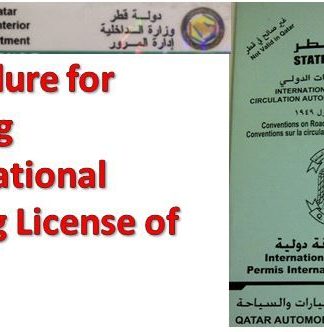Analysis
Inflation: The worst is not yet over for consumers – falling inflation is not the same as falling prices
While there are no signs of a ‘wage-price spiral’ core services inflation is still rising, signaling that higher private sector wages are beginning to stick despite the highest of inflation being behind us.
Paul Kelso
Business correspondent @pkelso
Wednesday 18 January 2023 16:16, UK
The inflation rate is a way of measuring the decline in the purchasing power of money over time, Pic: AP
Image:
The inflation rate is a way of measuring the decline in the purchasing power of money over time, Pic: AP
Why you can trust Sky News
That inflation of 10.5% should be essentially good news speaks volumes for the economic turmoil of the last year.
A second consecutive monthly fall from October’s high of 11.1% suggests price rises may have peaked and the descent towards less corrosive rates, perhaps below 6% by the middle of the year, has begun.
Sponsored link
Recommended byWhat is Outbrain
Some of this will be down to economic gravity, as increases that were gathering pace at the turn of last year, and accelerated with the Russian invasion of Ukraine in February, are lapped by this year’s figures.
If inflation has peaked, however, it does not mean the worst is over for consumers; falling inflation is not the same as falling prices. It is only the rate of increase that is slowing.
A fall in diesel and petrol prices, albeit from historic highs, brought the greatest downward pressure on consumer price index (CPI) inflation, with year-on-year inflation to December falling to 6.9% from a June peak of 15.2%.
That is good for drivers at the pump and for the economy more widely, reducing the cost of supplying goods as almost nothing in the UK moves without seeing the back of a lorry.
Falling fuel costs have not been enough to curb food prices, up 16.8% in the run-up to Christmas, a faster rate than in November and the highest since 1977 by Office of National Statistics calculation.
MORE ON INFLATION
People out shopping in Bristol city centre on the last Saturday shopping day before Christmas. Picture date: Saturday December 18, 2021.
Read less
Picture by: Ben Birchall/PA Archive/PA Images
Cost of living: Shoppers curbed Christmas spending in blow to struggling retailers
File photo dated 20/11/2022 of petrol and diesel fuel nozzles at a Asda fuel staion. The supermarket has cut fuel prices but the move should have happened much sooner, a motoring services company said. Asda has decreased the cost of petrol across its 320 UK filling stations by an average of 4.5p per litre in the past two days, according to the RAC. Issue date: Thursday December 08, 2022.
Inflation eases slightly to 10.5% from 10.7% the previous month due to cheaper fuel and clothes, official figures show
Huw Pill
Potential for UK to experience persistent inflation, Bank of England chief economist says
Related Topics:
Inflation
UK Economy
Shadow attorney general Emily Thornberry speaks to Sky News after the inflation figure for December was released – 10.5% compared to November's 10.7%.7:08
Play Video – Inflation down from ‘a high peak’
Inflation down from ‘a high peak’
All the primary factors in global inflation – war, energy and post-Covid supply chains – coalesce in food production, pushing up the cost of feed, fuel and fertiliser.
That makes pricier grocery bills inevitable and has a disproportionate impact on the least well-off, for whom food is a greater proportion of spending.
The best argument for higher wages
Many of them will work in the public sector, where high inflation will remain employees’ best argument for higher wage settlements, and the government’s primary justification for denying them.
Immigration minister Robert Jenrick told Sky News on Wednesday that increasing wage offers would “be the very worst thing we could do”, a comment unlikely to ease industrial relations or win approval from economists.
Read more
Rishi Sunak says public sector pay rises will fuel inflation. Economists say they won’t
Grocery staples up to 30% more expensive than a year ago
Microsoft to axe thousands of jobs
While ministers argue increasing public sector wages will cause a “wage-price spiral”, in which higher pay increases costs that businesses pass on to consumers, thus embedding inflation just as it starts to fall, plenty of economists disagree.
Many argue public sector pay is not inflationary because there is no onward cost to the consumer of a teacher or nurse’s time, but to the taxpayer, with the government able to adjust its spending accordingly. Increasing state employee pay may even deliver economic benefits, with more spending and a greater tax take.
With real-term pay falling 3.8% in November, and even private sector pay settlements of 7.2% on average well short of inflation, there is no sign yet of an upward spiral.
There is one cautionary figure in the latest data, however.
Core services inflation is still rising, up to 6.8%, a sign perhaps that higher private sector wages in a largely domestic market are beginning to stick.
Peaked or not, the Bank of England will not need an excuse to increase interest rates when it meets next month.






























